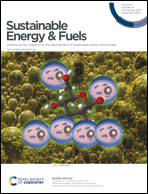Performance study of a supercritical CO2 Brayton cycle coupled with a compressed CO2 energy storage system for waste heat recovery of ship gas turbines under variable load conditions
Abstract
To fully use gas turbine waste heat, a new waste heat recovery system with a supercritical CO2 Brayton (S-CO2) cycle, transcritical CO2 Brayton (T-CO2) cycle, compressed CO2 energy storage, and thermal storage system is proposed. This paper investigates the effects on the unit thermal performance under variable mass flow rate regulation. Studies have shown that the thermal performance of the gas turbine decreases under low load operating conditions. The fuel consumption rate will increase, which leads to a decrease in the unit's economy as well. The thermodynamic and exergoeconomic performance mathematical model and evaluation criteria of the system are established, and the effects of key operating parameters on the system performance are investigated. Multi-objective optimization is carried out with the system efficiency and total product unit cost as the optimization objective function. The results show that after the optimization, the thermal efficiency reaches more than 40%, the exergy efficiency reaches more than 65%, and the lowest total product unit cost is 12.45 $ per GJ. The performance of the proposed system under different operating loads is studied. The results show that the proposed system is conducive to improving the performance of the waste heat recovery system under a low load and flexibly balancing the energy supply and demand.



 Please wait while we load your content...
Please wait while we load your content...